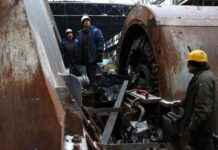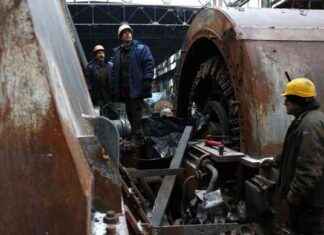Madrid’s NATO summit will “transform” NATO and bring about “the greatest changes” in defense of all allied countries. Jens Stoltenberg (the organization’s secretary-general) stated this Monday, stating that NATO will increase its rapid response forces to over 300,000. This is in preparation for an emergency.
Russia’s “brutal aggression against Ukraine” has made the international security system more vulnerable and has made Russia “the most direct threat to NATO values and its values.” Today, dialogue with this country “is not on” because, according to Stoltenberg’s, Moscow has chosen violence. Allies understand that they have to respond to “the new reality” by improving defense and implementing the biggest revisions of the collective defense system and deterrence since the Cold War.
When asked about Ceuta or Melilla, NATO Secretary General refused to answer the question. He did not assess whether these two cities are subject to the protection of the Alliance. Stoltenberg reminded that Article 5 of collective defense will be applied by the North Atlantic Council in the event of an attack and that it is a political decision.
Treaty ensuring protection for its members in case of an attack in Europe or North America. This would exclude Ceuta or Melilla in North Africa. Spain considers these cities covered because it recognizes that each country has to determine its geographic limits.
With around 40,000 soldiers, the allies have increased their presence within Eastern Europe. He now wants to increase cooperation with countries like Georgia and Moldova to “protect them from possible Russian aggression.”
NATO’s future roadmap will be shaped by the new strategic framework, which the leaders will discuss in Madrid. This plan is based on increasing defense spending. The Alliance members have increased their investments in this area over the years. Nine of them exceed 2% of the Alliance’s GDP. Its secretary general says that this percentage is not a ceiling, but a floor.
It wants to increase its fuel and ammunition supplies and spend more money. It wants to increase its air force deployment and the number of rapid response brigades. This could lead to an additional 300,000.
These battalions will have the ability to mobilize in just a few days to defend allied countries in case of attack. This sends a clear message to the Baltic states of support. This is a deterrent to Russia as any action against an allies will be considered an affront by NATO. Stoltenberg stated that the intention was not to create conflict but to stop it.
Another topic of discussion at the summit is the future entry of Finland and Sweden into the organization. These are two countries that are not aligned to the Atlantic Alliance. However, his candidacy is impeded by the veto from Turkey, which has been resisting its integration into NATO since May. The negotiations are blocked by Ankara’s “no” because the process requires unanimity from all allied countries.
Although the leaders of Sweden and Finland will be attending the Madrid meeting, it seems unlikely that they can resolve the current blockade. Stoltenberg acknowledged “progress” in the Nordic accession process, but did not give any deadline.








